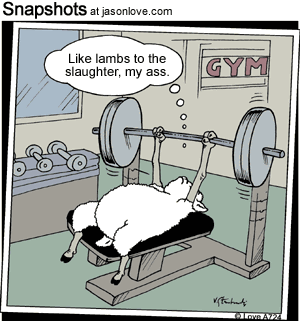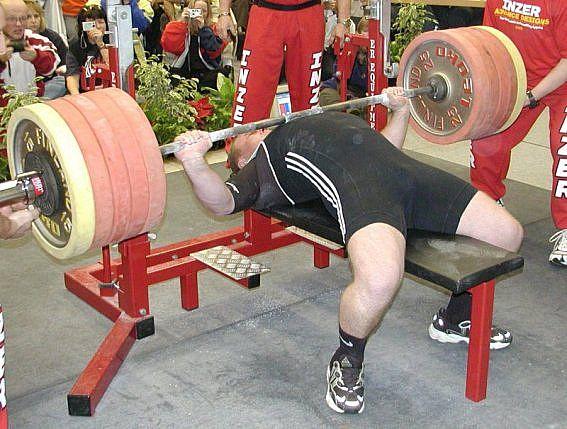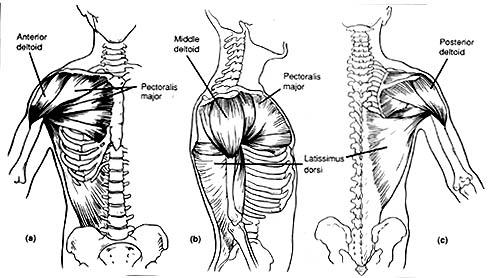Improving your bench press requires key bench press cues, and smart exercise programming. Whether you want to admit it or not, it’s nice to have a big bench. There are plenty of people who train in the gym to have a big bench, a big chest, and big arms, but never see any progress. They feel as if they are always at a “Plateau”. It is safe to say, if you fall into this category you are making these 5 fatal mistakes. But don’t worry, your not alone.

1. You just don’t know how to bench properly.
Benching properly takes time, experience, and working with someone that has the experience of training heavy under the bar. There are a lot of little cues that need to be mastered before you really start making progress.
I have been lucky enough to train with Charlie Weingroff and Thomas Phillips, at Fit for Life, in Marlboro NJ every time I make a trip home. Both guys have plenty of experience under the bar, and know what it takes to be strong. Every trip home results in more knowledge, which ultimately results in getting that much stronger. I truly believe it was my last trip home that resulted in a new lifetime best in the bench of 400.
To learn the little cues of benching read (how to bench the right way)
2. You don’t understand exercise programming
Being strong means hard work and lifting heavy weight. To improve your bench, LESS is MORE. In other words, it would behoove you to train at higher intensities, then higher volume. I have had my most success on bench when my 10-week program involved benching only once every 4 to 6 days. I only did one chest exercise - barbell bench press, and did no more than 5 sets of 6. However, my average training volume and intensity was 4 sets of 2-4 reps. That's not much.
Most exercise programming tends to follow a typical bodybuilding routine, with multiple sets, of multiple exercises, often times to failure. For example, some guys I know at the gym will flat BB bench, inclined BB bench, chest flys, and pushups all in the same workout. This style of exercise programming requires more time to recover, less activation of your high threshold motor units, and a shift in muscle phenotype to IIX rather than IIA. These adaptations are working against you if your goal is to truly enhance your bench.
The underlying factor to train at these higher intensities comes from within. You need to be able to turn it on and off, on repeated attempts in order to keep your progress going.
The most important factor of exercise programming that gets overlooked is full recovery. Recovery means time between sets, and days between training sessions. Taking 30 seconds between high intensity sets will not give your ATP-CP stores energy system or your Central Nervous System enough time to recover. The closer you are lifting to your 1RM, the more time it takes to recover. To crush a heavy workout, I highly recommend taking closer to 2 or 4 minutes between sets. This will allow you to maintain your speed of the bar throughout your sets and reps.
In terms of days between workouts, you have to think about the total volume and intensity, as well as your diet, overall physiological stress, whether you’re sick, relationship issues, or dealing with issues as work. The more stress, the more time needed between workouts. Remember, a strong bench needs a strong back and hip drive. If you train your back or legs heavy the day before or even the exercise before, your benching performance will suffer.
3. You think the bench press will only train your chest
Benching is a full body exercise. Yes, I mean from your head to your toes. When teaching someone how to properly bench, my favorite reaction is a hamstring or hip cramping. It is the ultimate sign of someone actually learning how to drive with their hips, and making/maintaining tension in their lower bodies.
When you set up properly to bench, with your feet pulled back, you will naturally be on your toes. Think about PRESSING YOUR HEALS INTO THE GROUND. Odds are you won’t be able to get your heals down there. Just by trying to press them into the ground, you are giving your body the cue to activate and create tension within your lower body. To do this while benching, think about driving your heals into the ground.

Using your lats and packing your scapula while you bench press is the best defense against shoulder issues. Most of us have experienced shoulder discomfort while benching at some point, it’s just part of the journey. In time, with proper bench technique, you can totally remove any pain and really start adding to your 1RM. Not to mention, activating your lats will eventually lead to even greater growth and definition.

4. You don’t train your back heavy
Building on what was said above, in order to really get your bench total to the next level you need a strong back. If you can’t control the load on the way down, there is no way you’ll be able to handle the load on the way up.
The stretch shortening cycle tells us the eccentric phase (lowering of the bar) of a lift store elastic energy, there is a slight pause for transferring energy called amortization (bars at your chest), followed by the concentric phase (pressing up) which will release the stored eccentric energy. This gives your body a platform to generate force and complete a lift. Without a strong back, your body will be limited in the amount of force it can generate and maintain.
From personal experience I find the stronger my back, the stronger my bench. The week before I hit 400, I was crushing sets of 160 db rows. It was a good sign of things to come!
5. You don’t go into your benching days with the right mentality
The final flaw that will limit your bench is between your ears... your brain! Lifting heavy takes serious focus, lots of motivation, courage, and confidence. If you have any doubt heading into a lift don’t even get under the bar.

In the book “Blink” by Malcolm Gladwell, he talks about first impressions, and the effect it can have on the outcome of a task. Gladwell mentions a man who has a ridiculous 90ish% ability to tell whether a serve is going to be in, or out, based on the tennis players body language. How does tennis relate to a bigger bench? If you get under the bar with negative body language, that same man will be able to tell that you are not going to complete your set.
Next time you’re under the bar, don’t just get your body right, but also get your mind right. See yourself crushing your set, feel the bar move smoothly from your chest to the top. It sounds hokey but there is something to be said for visualization. Give it a shot next time you're setting up for a big attempt!
Conclusion
There is always room to improve your bench. This article only lists a few of the major flaws I see in people make as they try and improve their bench. Try and apply a new fix each workout. Trying to do it all at once will only lead to confusion and frustration. Take your time and nail each cue on each rep.
If you enjoy reading this content share it with your friends! Be sure to like us on facebook, and pass the word.
Have a strong day!

